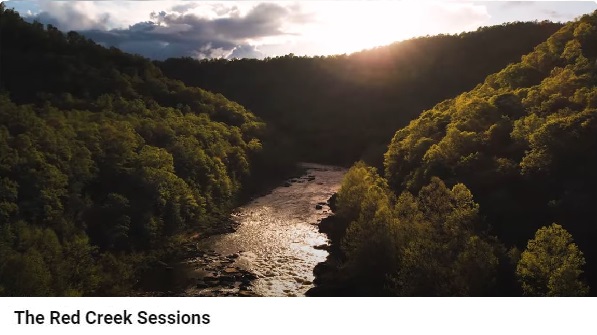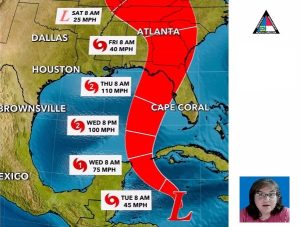EEFF filmmaker on Hurricane Helene: ‘Catastrophic’ loss of life in Appalachia
5 min read
DJ Suss D: Justin Harris is a photographer, content creator, and first-time filmmaker living deep in the mountains of West Virginia. He’s an avid whitewater kayaker and skier and began his career in action sports photography.
His exploration into video came during his tenure as the media director of a small West Virginia ski resort. Over the last two years, Justin has carved a niche in the mid-Atlantic whitewater scene through a river report video series documenting the elusive Class 4 and Class 5 steep creeks of his home state.
[00:00:34] His first short film, The Red Creek Sessions, showcases a glimpse into one of the most dangerous and logistically challenging steep creeks in West Virginia, as well as highlighting the beauty and unique aspects of the Cheat River watershed.
[00:00:47] He is currently in production on his second film about White Grass Ski Resort and the relationship between Nordic skiing and whitewater kayaking. He spoke at the Eugene Environmental Film Festival about the impact of Hurricane Helene on the people and environment of Appalachia.
[00:01:04] Justin Harris: An area that was impacted is, it’s an amazing mecca of whitewater and it was home for me for five years. And before it even happened, the night before it happened, I knew that land really well. And I’ve been a kayaker down there for a long time. When you’re a kayaker, you study weather and you understand flow and things like that. And I knew it was going to happen. I didn’t know it was going to be as bad as it ended up being. But we always feared that kind of a hurricane coming in and hitting the mountains like that.
[00:01:38] And sure enough, it was catastrophic and devastating on a level that I really don’t think the media has portrayed to the national, like, out there, the level that it was. Because it’s hard to understand Appalachia and the hollers up there and everything.
[00:01:57] And when this hit, we chose to go down there as quickly as we could and help. And they needed it because the high hollers in the mountains go on forever, and we know those mountains well, and we knew there were going to be a lot of people that were hard to get to, and there were.
[00:02:17] So last week I went down and took a horse team from Canaan Valley and these horses are trained to operate in mountainous terrain. And we met up with a mule pack team from North Carolina and for four days we transported goods into the hard-to-reach places and helped the—
[00:02:43] Here in West Virginia, we call it hillbillies. And that’s not a derogatory term. That’s actually a term of endearment. And so the hillbillies from West Virginia went to western North Carolina to help the hillbillies of western North Carolina. We knew how deep out in there they were. When you’re like that, you know, you can’t rely on people to come save you ’cause it takes so long to get to them, so they had to save themselves.
But I saw some extraordinary impacts from water on a scale that I really did not think was possible scientifically. And I’m sure anybody that’s followed what went on there—you’ve heard that, about 31 inches of rain fell in 24 hours on the Black Mountains—and those kinds of numbers are things that we never thought would happen. And the resulting water into our rivers, our whitewater rivers, we never thought we’d see those kinds of numbers.
[00:03:49] And from a geologic perspective, because if you were with us last year, my film The Red Creek Sessions was about geology and whitewater. And one of the most fascinating things from scientific level about this flood is all the rivers in that area are completely changed for us as whitewater factors. It jumbled up all the rapids. There’s waterfalls that were there before that now don’t exist. There’s other places where there was like no rapid and now there’s a 12-foot drop.
[00:04:19] So it’s pretty remarkable, the power that went into the storm. We obviously went down there to help but we also wanted to go down there because we did want to see with our own eyes what had happened, and it was shocking. It really was.
[00:04:39] Because one of the things that the media doesn’t really, it hasn’t really portrayed accurately is: The loss of life is catastrophic down there. It’s probably going to end up being between about 700 and 1,000. But all those people are missing right now. And the reason they’re missing is mudslides. Well, they’re actually called debris slides, because it’s not really mud. It’s like mud and debris, but that was really bad in North Carolina. And those people got washed away. So they’re missing right now and it’s not a good situation at all down there.
[00:05:16] You know if you’re there. And so all the help that we offered in the first week for search and rescue kind of got consolidated into the French Broad River Academy. And they’re running out of their website a grassroots operation that’s pretty incredible, that’s just gained a lot of steam, and I think everybody’s gotten into that page and it helps a lot because they’re very organized.
[00:05:44] So the French Broad River Academy is where you can go and do that. So if you guys like have an opportunity, I know it’s kind of cliche to say money, but money is what those people need. They need money to rebuild their towns, so if you can help, please help.
The first couple of weeks, we all were raising our own funds for our own operations, and one of the really cool things about what just happened—and it’s a silver lining to just a horrible disaster—the French Broad River Academy is a valid way of helping from anywhere in the world
[00:06:22] DJ Suss D: The French Broad River Academy is at www.FBRA-AVL.org. To aid in hurricane relief, go to the Helene Rebuild Collaborative at HurricaneHeleneWNC.com.
[00:06:36] You can access the Film Festival virtually from Oct. 21 through Nov. 3 at EnvironmentalFilmFestival.org. For KEPW News, I’m DJ Suss D.





